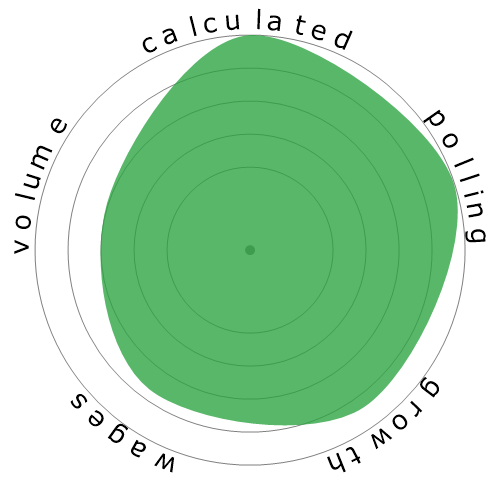Physical Therapists
Where Would You Like to Go Next?
Or, Explore This Profession in Greater Detail...


What does this snowflake show?
What's this?
We rate jobs using four factors. These are:
- Chance of being automated
- Job growth
- Wages
- Volume of available positions
These are some key things to think about when job hunting.
People also viewed
Calculated automation risk
Minimal Risk (0-20%): Occupations in this category have a low probability of being automated, as they typically demand complex problem-solving, creativity, strong interpersonal skills, and a high degree of manual dexterity. These jobs often involve intricate hand movements and precise coordination, making it difficult for machines to replicate the required tasks.
More information on what this score is, and how it is calculated is available here.
User poll
Our visitors have voted there's a low chance this occupation will be automated. This assessment is further supported by the calculated automation risk level, which estimates 0.0% chance of automation.
What do you think the risk of automation is?
What is the likelihood that Physical Therapists will be replaced by robots or artificial intelligence within the next 20 years?
Sentiment
The following graph is shown where there are enough votes to produce meaningful data. It displays user poll results over time, providing a clear indication of sentiment trends.
Sentiment over time (yearly)
Growth
The number of 'Physical Therapists' job openings is expected to rise 14.2% by 2033
Total employment, and estimated job openings
Updated projections are due 09-2025.
Wages
In 2023, the median annual wage for 'Physical Therapists' was $99,710, or $48 per hour
'Physical Therapists' were paid 107.5% higher than the national median wage, which stood at $48,060
Wages over time
Volume
As of 2023 there were 240,820 people employed as 'Physical Therapists' within the United States.
This represents around 0.16% of the employed workforce across the country
Put another way, around 1 in 630 people are employed as 'Physical Therapists'.
Job description
Assess, plan, organize, and participate in rehabilitative programs that improve mobility, relieve pain, increase strength, and improve or correct disabling conditions resulting from disease or injury.
SOC Code: 29-1123.00
Comments (22)
Big issue is one of liability. When the Pt does something incorrectly, or gets hurt doing something, who becomes liable?
Long answer - while I agree with the previous commenters that 'Someone needs to be there', who is that someone? Is it just a PT Assistant and a chatbot that comes up with the plans and the assistant guides the exercises? You need to consider reduction in job scale (thus salary) here not just elimination.
I say no overall because the way I think about it is people will pay for this service (mainly the care/psychological aspect and not just the exercises that they could find on google already). I have been in this situation myself. This isn't a fast food restaurant where people just want their food and don't care how it is made. I think if the therapist is good at the care, patient management, psychology, and any additional 'experience' aspects in addition to knowing the technical stuff they will be fine.
I am a physical therapist. We don't treat injuries based solely on reported impairments. We view each injury holistically. If AI can treat chronic pain patients better than us therapists, then that would be a nice day.
Plus, would you rather have a robot treating and instructing you to exercise? I don't think so. Physical therapists also face patients who are in their worst state. Imagine being treated by robots like Darth Vader. Yes, that might sound profitable for some hospitals, but ask any patient if they would like to be handled solely by robots.
We're not just patting your backs or asking you to lift some weights. We see you as more than just your back problem. We don't just zap or pat your backs.
Not possible in next 30 years.
The data you say will help us only.
Reply to comment